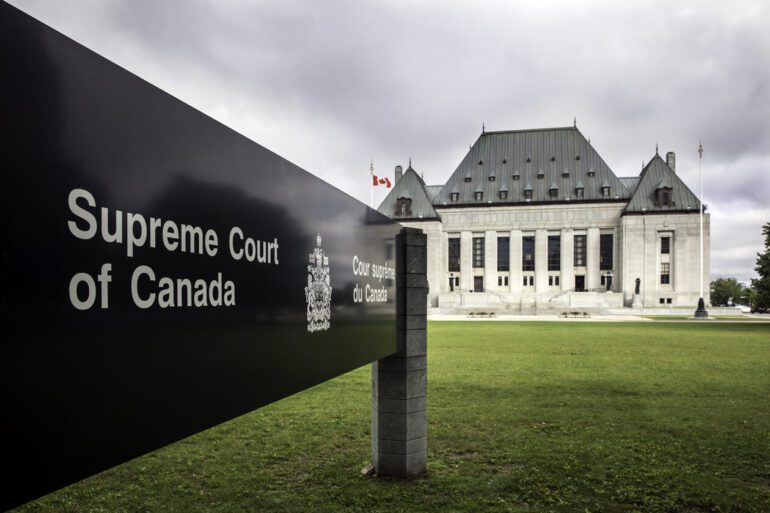TL;DR:
- Canadian courts are addressing the use of artificial intelligence (AI) in the legal system.
- Chief Justices have issued practice directives requiring disclosure of AI tools and their purposes in legal submissions.
- Concerns about the reliability and accuracy of AI-generated information are driving the need for transparency.
- The directives apply to tools like ChatGPT, which, despite their potential, may produce unreliable content.
- The incident involving lawyers using ChatGPT highlights the risks of solely relying on AI-generated information.
- Self-represented litigants using AI tools may face challenges due to their limited legal knowledge.
- The directives aim to understand and manage the use of AI in the court system without discouraging legitimate applications.
- The directives recognize the importance of virtual tools for legal submissions but emphasize the need for caution and understanding.
- The flexible nature of the directives allows for revisions as AI technology advances.
Main AI News:
The Canadian legal system is witnessing a growing interest in the utilization of artificial intelligence (AI), prompting the involvement of the courts in regulating its application. Chief Justices from various regions of Canada have issued practice directives, mandating lawyers to disclose the use of AI tools in legal submissions and provide detailed information about the specific tool employed and its intended purpose.
In a recent interview, Yukon Supreme Court Chief Justice Suzanne Duncan acknowledged the absence of specific regulations pertaining to the use of emerging AI tools like ChatGPT. Recognizing the rapid evolution of AI, she emphasized the importance of ensuring transparency and fairness in its deployment throughout legal proceedings. As a result, Chief Justice Duncan issued a directive stating that if any counsel or party relies on AI tools for legal research or submissions, they must inform the court about the tool used and its purpose.
ChatGPT, an AI program that generates content based on user prompts, is one such tool that has garnered attention in the legal community. While capable of producing coherent and human-like responses, ChatGPT’s reliability is not always guaranteed due to the vastness of its information database.
Similar to the Yukon directive, Chief Justice Glen Joyal of Manitoba’s Court of King’s Bench issued an order on June 23, requiring lawyers and self-represented litigants to disclose their use of AI in submissions. Chief Justice Joyal stressed the need for ongoing discussions surrounding the responsible use of AI in court cases, citing concerns about the accuracy and reliability of information generated by AI programs.
A notable incident at a Manhattan federal court further highlighted the potential pitfalls of relying solely on AI tools. Two lawyers utilized ChatGPT to find legal precedents supporting their client’s case, but the tool generated fictitious case law and opinions, leading to a fine of $5,000 for the lawyers and their firm. Chief Justice Duncan expressed her keen interest in this development and emphasized the need for awareness regarding the use of AI tools like ChatGPT.
Chief Justice Joyal acknowledged the ever-increasing presence of AI and the necessity for caution in its application. While the responsible use of AI in court cases cannot be entirely predicted or defined at present, there are genuine concerns regarding the reliability and accuracy of the information generated by AI systems.
Chief Justice Duncan clarified that the directive aims to gain insight into the current and potential use of AI in the court system without discouraging its legitimate applications. She recognized the efficiency gains that AI can bring in terms of time and cost. The directive specifically focuses on legal research and submissions, distinguishing AI tools used for writing and grammar, such as Grammarly, which are not intended to be discouraged or restricted.
The utilization of virtual tools for legal submissions has become crucial in today’s legal landscape. Traditional legal research platforms like Westlaw, Carswell, and CanLII have transformed legal research practices, but their parameters, limitations, and reliability are well understood. In contrast, the nature of AI tools like ChatGPT remains less familiar and requires attention.
Another significant aspect to consider is the impact of AI tools on self-represented litigants, who may lack legal training or expertise. Chief Justice Duncan stressed the importance of addressing this issue, as self-represented litigants may turn to AI tools like ChatGPT, potentially leading them astray due to their limited understanding of the legal databases utilized by lawyers.
Nevertheless, Chief Justice Duncan expressed enthusiasm for the progress of AI and its potential to enhance access to justice by reducing costs and providing self-represented litigants with additional resources. The broad and flexible nature of the practice directive acknowledges these possibilities and demonstrates the court’s willingness to adapt as knowledge about AI advances.
Conclusion:
The Canadian courts’ focus on transparency and accountability regarding the use of AI in the legal system reflects a growing awareness of the potential benefits and risks associated with these tools. The directives underscore the need for lawyers to disclose their reliance on AI, ensuring that the courts are aware of the tool being used and its purpose. While the intention is not to discourage the use of AI, the courts prioritize reliability and accuracy in legal submissions. This development suggests that the market for AI tools in the legal sector will likely witness increased scrutiny, emphasizing the importance of responsible AI implementation and continued discussions on its use in court cases.

